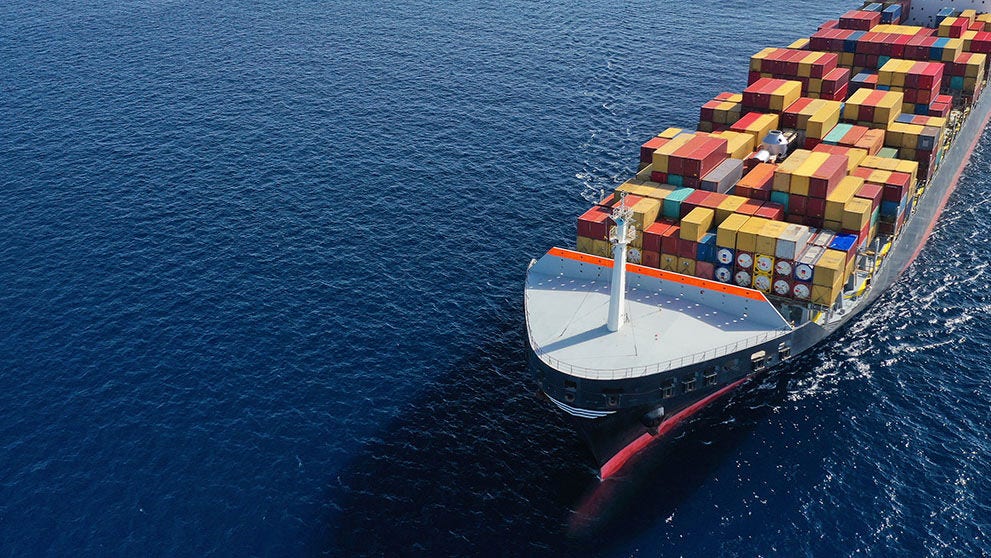
Harakeke, or New Zealand flax, holds immense cultural significance for Māori and is gaining commercial interest globally. Renowned for its strong fibers, beautiful flowers, and versatile properties, the harakeke plant is used in traditional weaving, contemporary crafts, and even for its medicinal properties. As global demand for natural and sustainable materials grows, so does the opportunity for New Zealand businesses to share this resource.
This article serves as an essential guide to shipping harakeke, addressing key considerations and concerns for New Zealand businesses. It also delves into understanding the plant, shipping considerations, packaging best practices, and how DHL Express can help streamline your harakeke shipments.
Understanding harakeke
What is harakeke? Harakeke (Phormium tenax), commonly known as New Zealand flax1, is an iconic native plant of New Zealand. It's not a true flax (from the Linum genus) but is named so due to its fibrous leaves that resemble those of European flax. This resilient plant thrives across various landscapes in New Zealand, from coastal areas to wetlands, and is easily recognizable by its tall, sword-like leaves.
Traditionally, harakeke weaving has been part of Māori culture. Its strong, durable fibers were used to create a wide array of items, including kete (baskets), whāriki (mats), cloaks, and fishing nets. Other parts of the plant also had significant uses. The gum from the plant was used for medicinal purposes, and the nectar from harakeke flowers was a sweet treat.
In modern times, New Zealand flax continues to be valued for its natural fibers in crafts and textiles, particularly for sustainable and eco-friendly products. Its cultural significance, coupled with its versatile properties, makes it a unique and appealing commodity for international markets.
Shipping considerations for harakeke
When preparing to ship harakeke products internationally, a thorough understanding of various regulations and best practices is crucial. The unique nature of New Zealand flax, whether it's dried fibers, woven products, or even seeds, means that standard shipping rules may not always apply.
It’s important to check the import regulations of the destination country. Each country has its own rules regarding the entry of plant materials, agricultural products, and even finished goods derived from plants. Always refer to official resources like the customs websites or agricultural departments, as failure to comply can lead to significant delays, confiscation, or even penalties.
Within New Zealand, biosecurity considerations are equally important. The Ministry for Primary Industries (MPI) sets strict export regulations2 to protect New Zealand's unique biodiversity. Therefore, you must ensure your harakeke products comply with these standards before export. This involves proper cleaning, treatment, and sometimes specific certifications, which are key steps for businesses looking into how to ship plant materials.
Shipping harakeke seeds, domestically or internationally, also demands careful attention. Seeds often fall under strict phytosanitary regulations due to the risk of introducing foreign pests or diseases. For international seed shipments, specific permits from both the origin and destination countries are almost always required, along with detailed shipping documents outlining the seed type and origin.
While this guide focuses primarily on dried products, it's worth noting that shipping live flax plant materials like seedlings or cuttings presents even greater challenges, requiring precise temperature and moisture control, and rapid transit times for viability. Such shipments often fall under stringent shipping restrictions and necessitate specialized international shipping services.
For dried harakeke products, such as harakeke weaving items, appropriate packaging is crucial to protect them from moisture, crushing, and bending. Use sturdy boxes, moisture-absorbing desiccants, and cushioning. Even for dried items, specific import regulations or documentation may be required at the destination country for plant-based products, so include these in your international shipping checklist to ensure a smooth customs clearance process.

Packaging and maintaining freshness
Proper packaging is paramount when shipping harakeke, particularly if you're dealing with fresh material, to prevent damage and maintain its condition during transit. Even for dried products, careful packing safeguards their integrity and cultural value.
For fresh harakeke plant material:
- Moisture retention: The key is to keep the material hydrated without encouraging mold. Wrap the cut ends of the New Zealand flax leaves in damp paper towels or sphagnum moss, then secure with plastic wrap. This helps maintain moisture during transit.
- Breathability: While retaining moisture, the packaging should also allow for some airflow to prevent condensation build-up, which can lead to rot. Use breathable materials like newspaper or craft paper around the damp ends, and then place the wrapped leaves in a plastic bag that is not fully sealed.
- Protection from impact: Place the prepared harakeke in a sturdy shipping box for fragile items that can withstand handling. Ensure there's enough space so the leaves aren't bent or crushed. Use cushioning materials like crumpled paper or bubble wrap to fill voids and prevent movement.
- Temperature control: For fresh harakeke, maintaining a cool, stable temperature is crucial. During warmer months, consider using insulated boxes with gel packs. Avoid direct contact between the gel packs and the plant material by wrapping the gel packs in newspaper. This ensures the leaves stay cool without freezing.
Partner with DHL Express for your shipping needs
When you're ready to share harakeke products with the world, DHL Express is ready to support your shipping needs from New Zealand. It's important to note that shipping live harakeke plant materials typically falls under highly specialized regulations beyond standard express parcel delivery due to strict biosecurity rules. However, for dried New Zealand flax products, woven goods, or seeds, DHL Express offers comprehensive support.
DHL Express can help at every stage to ensure compliance. For harakeke seed shipments, DHL Express ensures proper labeling and documentation. With their experience in handling delicate items and express services, transit times can be minimized, helping maintain product freshness and integrity for even the most unique flax plant-derived products. They also offer a checklist to assist with preparation.
Ready to send your harakeke weaving or other unique harakeke products globally? Open a DHL Express business account today for seamless and reliable international shipping.

































